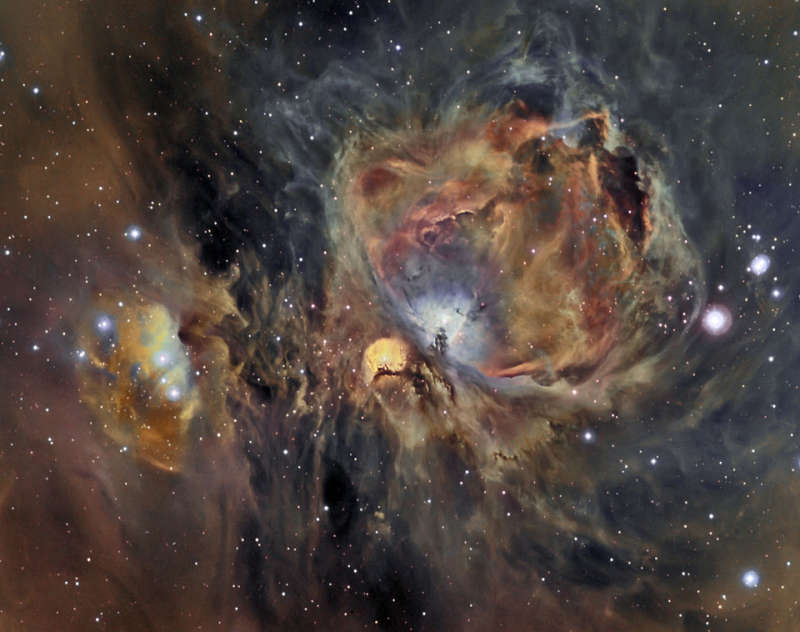Credit & Copyright: CIsar Blanco GonzAlez
Explanation:
Few astronomical sights excite the imagination like the
nearby stellar nursery known as the Orion Nebula.
The Nebula's glowing gas
surrounds hot young stars at the edge of an immense interstellar
molecular cloud.
Many of the filamentary structures visible in the
above
image are actually
shock waves -
fronts where fast moving material encounters slow moving gas.
The Orion Nebula spans about 40
light years
and is located about 1500 light years away in the
same spiral arm
of our Galaxy as the Sun.
The Great Nebula in
Orion can be found with the
unaided eye just below and to the left of the easily identifiable
belt of three stars in the popular constellation Orion.
The above image shows the nebula in three colors specifically emitted by
hydrogen,
oxygen, and
sulfur gas.
The whole Orion Nebula cloud complex,
which includes the
Horsehead Nebula,
will slowly disperse over the next 100,000 years.
1999 2000 2001 2002 2003 2004 2005 2006 2007 2008 2009 2010 2011 2012 2013 2014 2015 2016 2017 2018 2019 2020 2021 2022 2023 2024 2025 |
Yanvar' Fevral' Mart Aprel' Mai Iyun' Iyul' Avgust Sentyabr' Oktyabr' Noyabr' Dekabr' |
NASA Web Site Statements, Warnings, and Disclaimers
NASA Official: Jay Norris. Specific rights apply.
A service of: LHEA at NASA / GSFC
& Michigan Tech. U.
|
Publikacii s klyuchevymi slovami:
Orion Nebula - star formation - Tumannost' Oriona - zvezdoobrazovanie
Publikacii so slovami: Orion Nebula - star formation - Tumannost' Oriona - zvezdoobrazovanie | |
Sm. takzhe:
Vse publikacii na tu zhe temu >> | |
